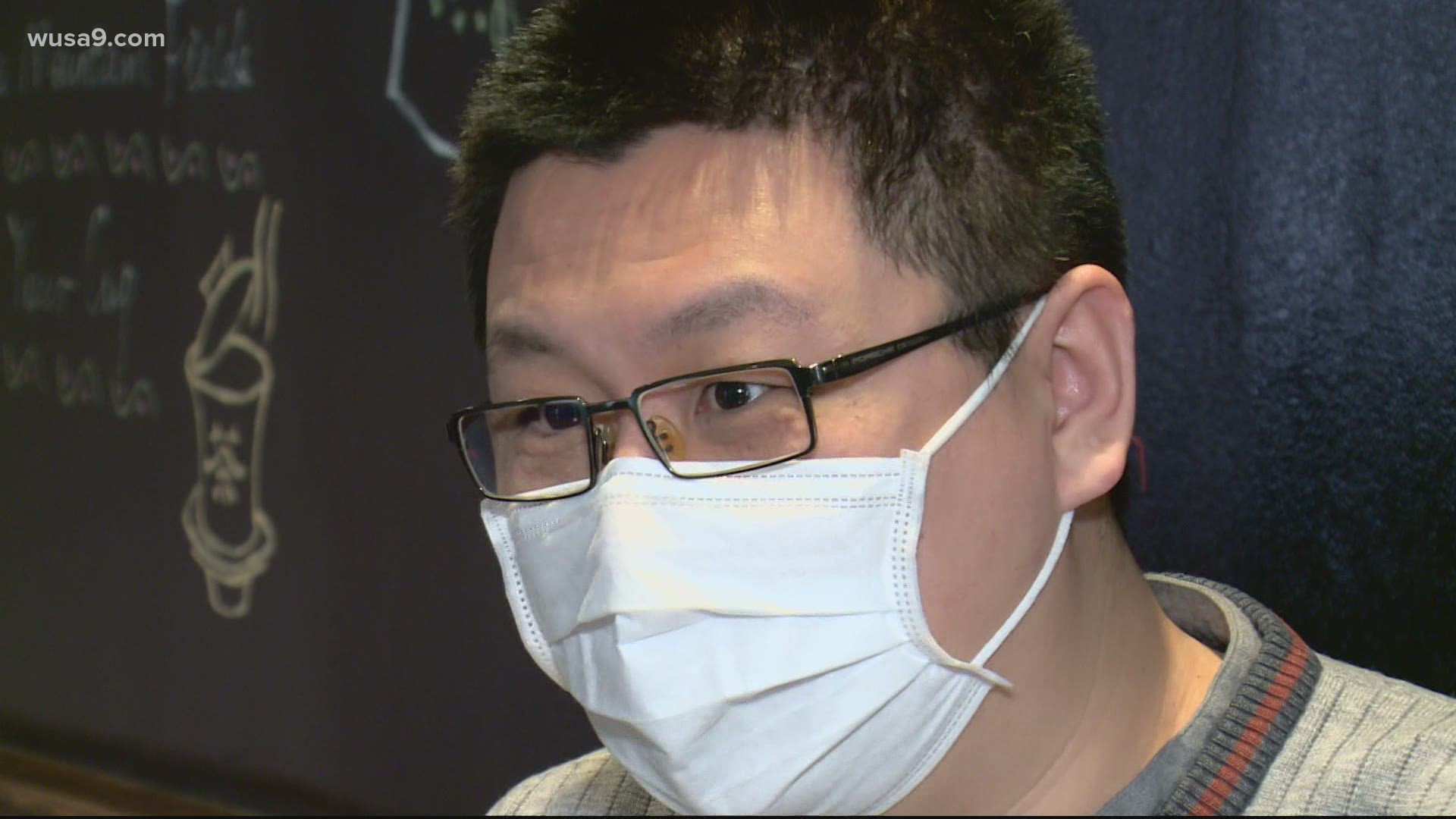WASHINGTON — The start of the Lunar New Year would normally be a joyous occasion, but celebrations have been disrupted by the COVID-19 pandemic and tainted by a string of ongoing attacks against the Asian American and Pacific Islander communities across the country.
There has been a number of violent crimes targeting vulnerable elderly Asian Americans in recent weeks including an 84-year-old Thai American who died after being pushed to the sidewalk in San Francisco, a 64-year-old Vietnamese American robbed after withdrawing money for Lunar New Year in San Jose and a 91-year-old Oakland man caught on video being shoved to the ground in Chinatown.
More than a dozen Asian-owned businesses in Portland were vandalized during a time when the pandemic has drastically slowed business in the past year.
It's unclear if the cases are race-related but numerous national, state and local organizations have voiced concerns about the increase in violence including the National Association of Asian American Professions, Washington, D.C. (NAAAP DC), which condemned anti-Asian racism and xenophobia being increasingly fueled by COVID-19.
"Even before the first case of COVID-19 here in the U.S., our communities, both business and individuals, have been under attack," John Yang of the Asian Americans Advancing Justice (AAAJ) said. "The rhetoric from the prior presidential administration certainly did not help. If anything it conditioned people to think Asian Americans were somehow foreign, somehow carriers of disease and it caused a tremendous spike in anti-Asian hate incidents we've seen."
AAAJ has an incident report center called Stand Against Hatred, which reports more than 3,000 cases of harassment and violence against the AAPI community since March. It works in collaboration with Stop AAPI Hate, a different tracking organization managed by Asian Pacific Planning and Policy Council, Chinese for Affirmative Action and the Asian American Studies Department of San Francisco State University.
There were almost 1,800 racist incidents against Asian Americans across the country between March and May 2020, according to a report issued by the United Nations.
AAAJ said when it began receiving reports of incidents in 2016, the number was just around 100. In the DMV, the group said there were 29 reports of harassment related to the pandemic since March.
President Donald Trump has been blamed for stoking the anti-Asian rhetoric after calling COVID-19 the "Chinese virus."
"If the president is leading the charge, what else can't happen, honestly?" Valley Brook Tea owner Yunhan Zhang asked. "That moment I knew a lot more attacks were going to happen."
Zhang was working at his store in Dupont Circle in November when a stranger walked in without a face mask and yelled "Chinese" and "COVID-19" at him. Surveillance video captured the man taking out a can to pepper spray Zhang before fleeing the building. To this day police have not been able to arrest his attacker.
Both Zhang and Yang agree there needs to be more conversation about the ongoing problems and the history of racism against the Asian American community as hateful and discriminatory incidents will likely continue.
President Joe Biden recently signed an executive memorandum denouncing hate and violence, but community advocates hope the effort to address the issue doesn't stop there.
"We have an administration now that recognizes xenophobia and racism whereas the administration fueled xenophobia and racism," Yang added.
There were three total bias-related offenses against Ethnicity/National Origin (Chinese or Asian) during the 2020 calendar year, according to DC Police. No offenses have been reported in 2021.
The police department has an Asian Liaison Unit which added three additional Cantonese or Mandarin-speaking officers for outreach to ensure the Chinese community felt safe reporting any concerns.

